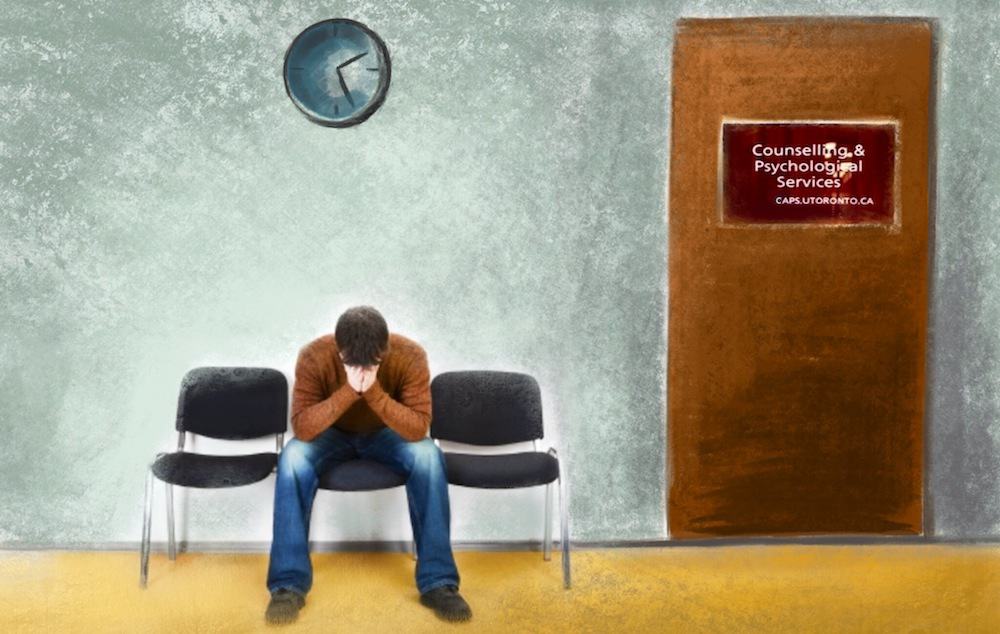Imagine yourself in a room with no door or windows, with exceptionally narrow walls that rise high above your head. The room is not a discernible colour, but it is dark inside. You are somehow inside this room and you don’t know how you got here. You don’t know how to get out.
Inside the room, you start envisioning all the nightmares you have had in the past. Your fears begin to crawl up your legs and sink into your skin, taking possession of your mind and body. They make your heart race and your breathing shallow.
There is still a part of you that is in control. However, it has been locked behind bars, and it is very small. It is merely a spectator to the havoc inside your head, watching in horror as you lose control of an integral part of yourself.
As you lose your dignity and are overtaken by shame and self-hatred you cannot even pity yourself, but are disgusted instead. That is what a panic attack feels like for me. That is what people like me go through on a daily basis.
Once I understood that my problem was not going to go away by itself like normal induced panic, I decided to approach someone for help. I’m an international student with no doctor here in Canada, but I had heard about Counselling and Psychological Services (CAPS) on campus and I had walked past the office multiple times on my way to the bookstore. So I called in and booked an appointment, and was scheduled in for a phone diagnosis.
After a long conversation with a doctor on an early Friday morning, I was told that they wanted to waitlist me for Cognitive Behavioral Therapy (CBT) and regular psychotherapy. I had been preliminarily diagnosed with a Panic Disorder. A real disorder with a name to it and a set of symptoms; something I had studied from the Diagnostic and Statistical Manual of Mental Disorders when taking an intro to Abnormal Psychology course.
That was on January 28. As I write this, it is now March 5.
I don’t want to criticize the work being carried out by CAPS because I know that they are short-staffed for the number of students who require their services, but it shocks me that it takes so long for a person to receive health care from a university service that is being funded by thousands of students. It seems very severe to limit people from accessing a psychologist on campus if they do not have “suicidal tendencies.” During my wait to receive treatment, I have often found myself wondering why I have to be suicidal in order to receive help in a timely fashion.
Furthermore, for students who are not covered under the Ontario Health Insurance Plan (OHIP), such as international students like myself, access to counselling and treatment for psychological issues is very limited — in Toronto at least. U of T Health Services and other walk-in clinics provide one-hour counseling sessions, but they primarily aim to provide medication to help a person get by, rather than a long term option that doesn’t leave patients dependent on chemicals. Additionally, there are very few health forums online that are run by actual trained professionals. There are websites such as 7 Cups of Tea with individuals who would like to listen to your issues, but they cannot help to bring long-term relief.
Similarly, help lines such as Good 2 Talk or Kids Help Phone are wonderful for short term relief when you’re going through a bout of anxiety, but it is almost impossible to get the same nurse on call every time. These types of services do not provide long lasting support, as you end up rehashing the same problems over and over again.
This brings me to the question of whether there is any way for quick, inexpensive support to be provided to those living with anxiety and other mental health illnesses; or if thousands of students who suffer from these issues have to just “stick it out” until services such as CAPS eventually get around to contacting them. If U of T support systems such as Accessibility Services require referrals from doctors — and doctors are not available — what options remain on the table?
The writer is is a second-year student at Woodsworth College, double-majoring in psychology and criminology.


